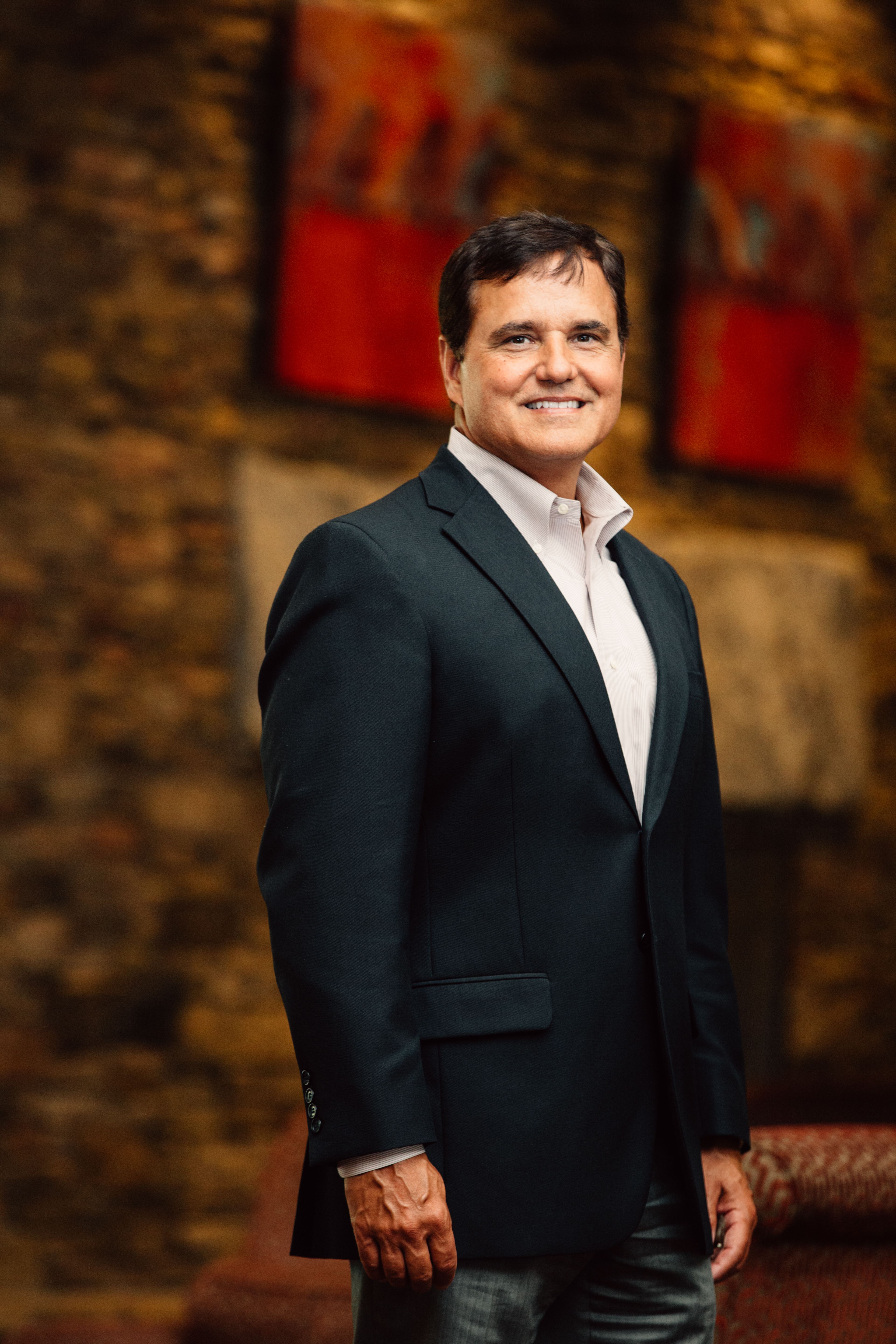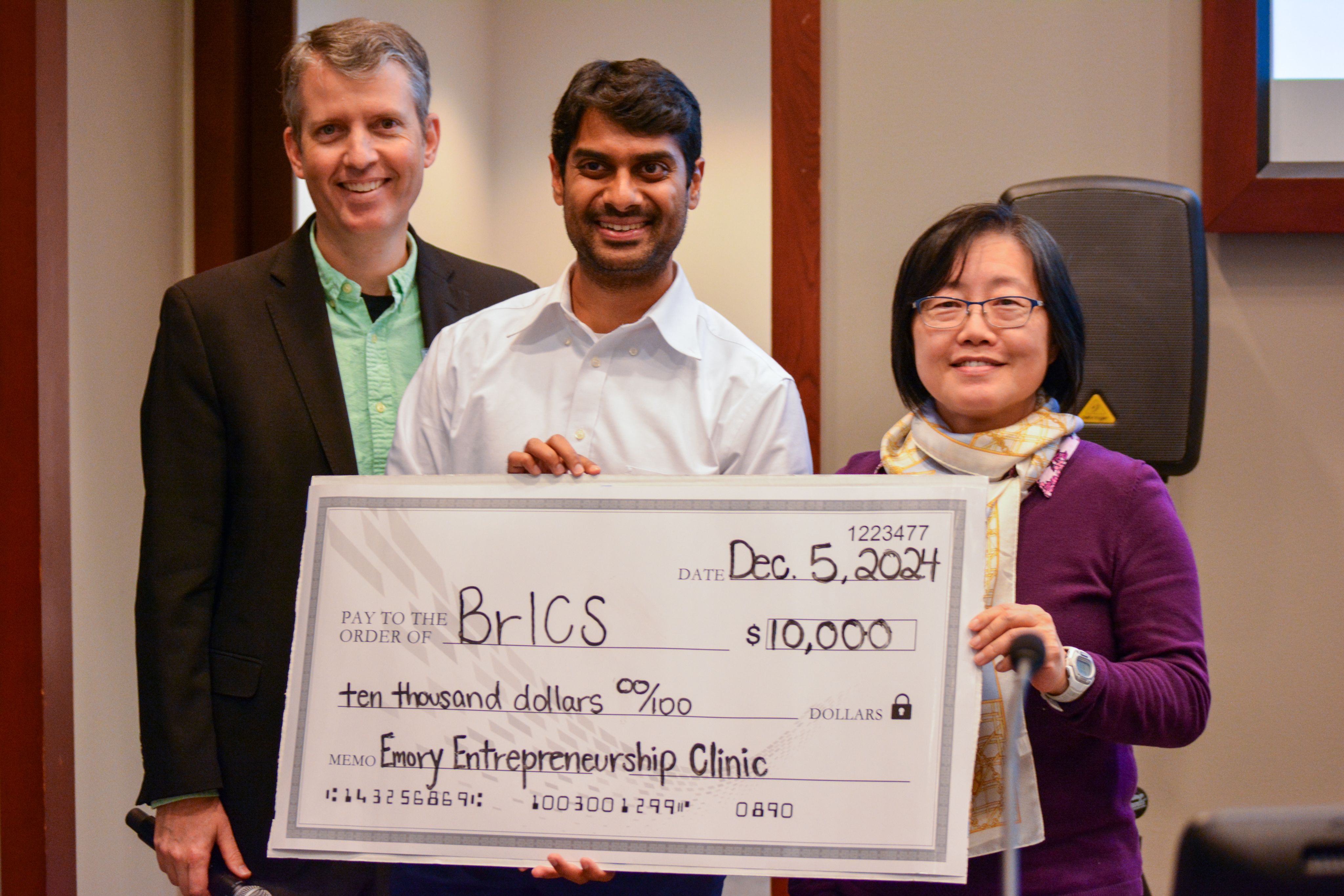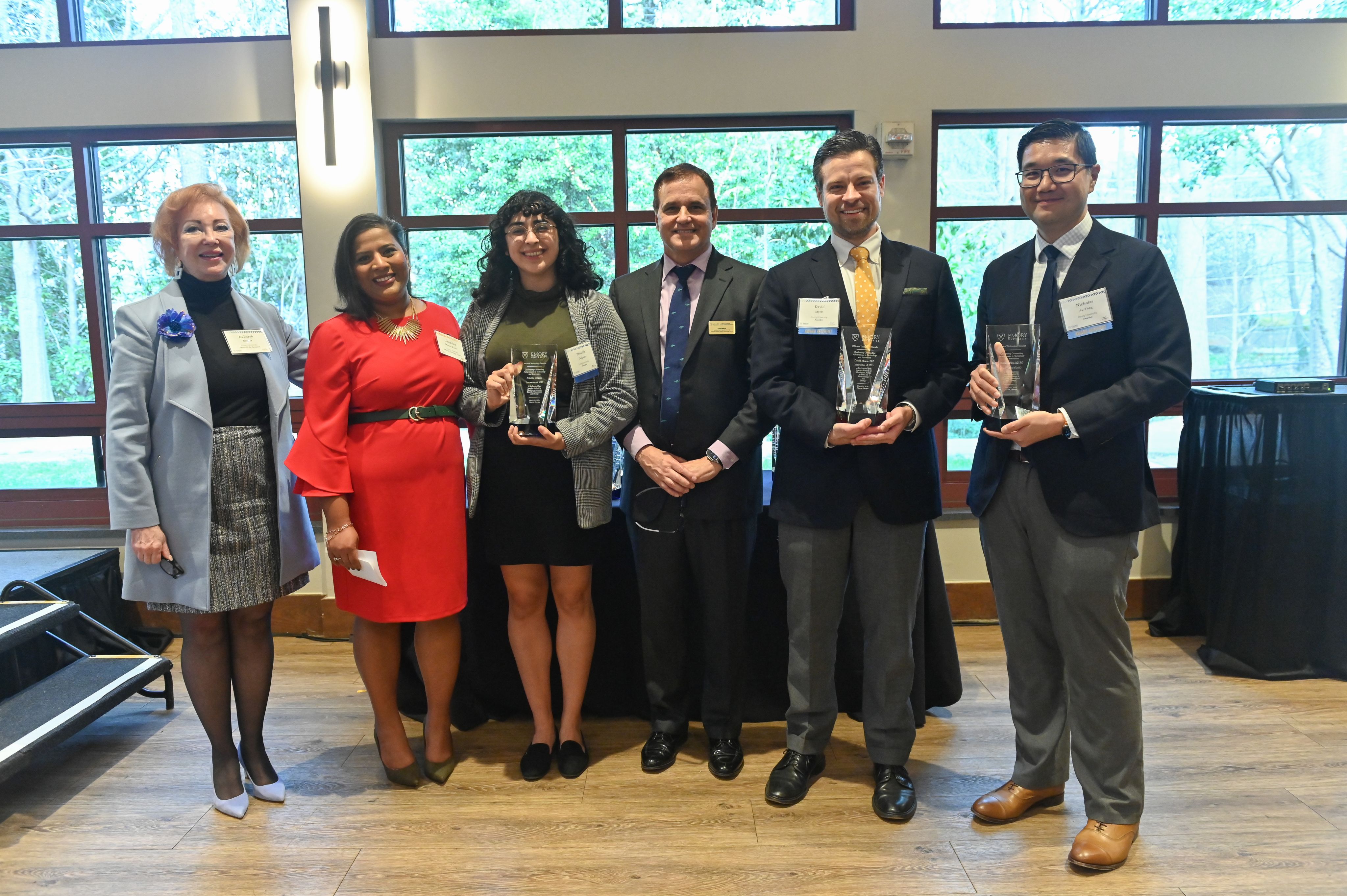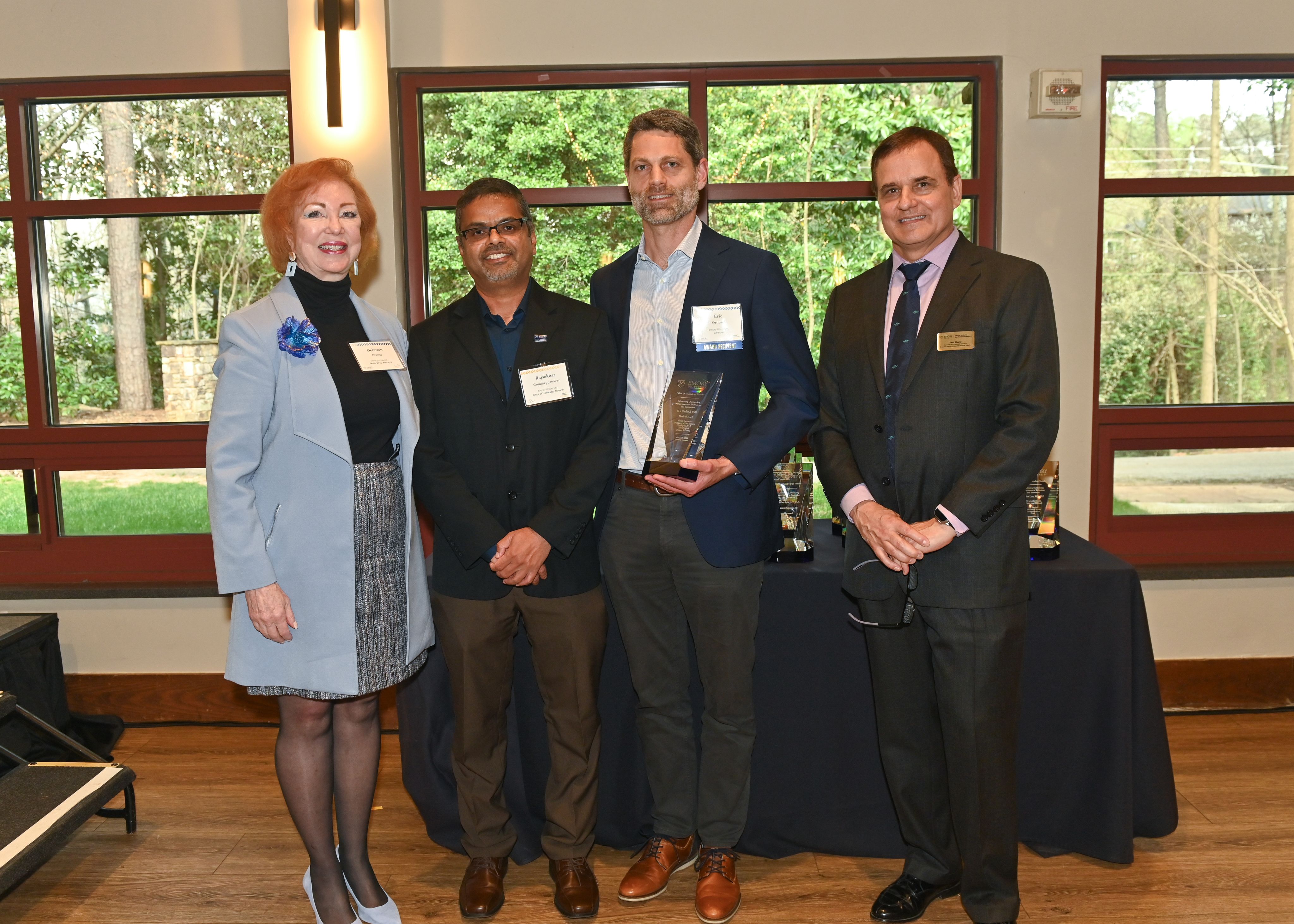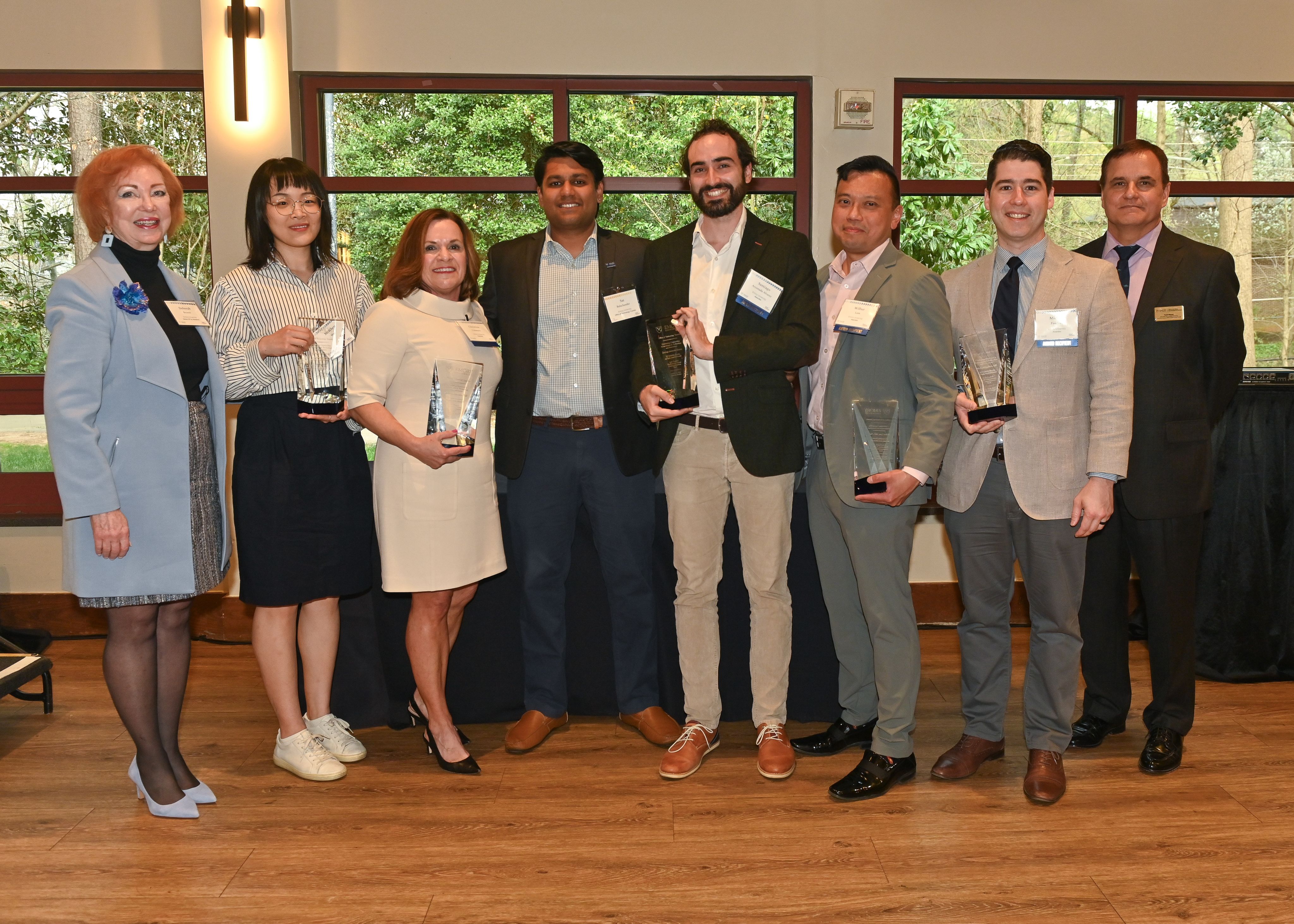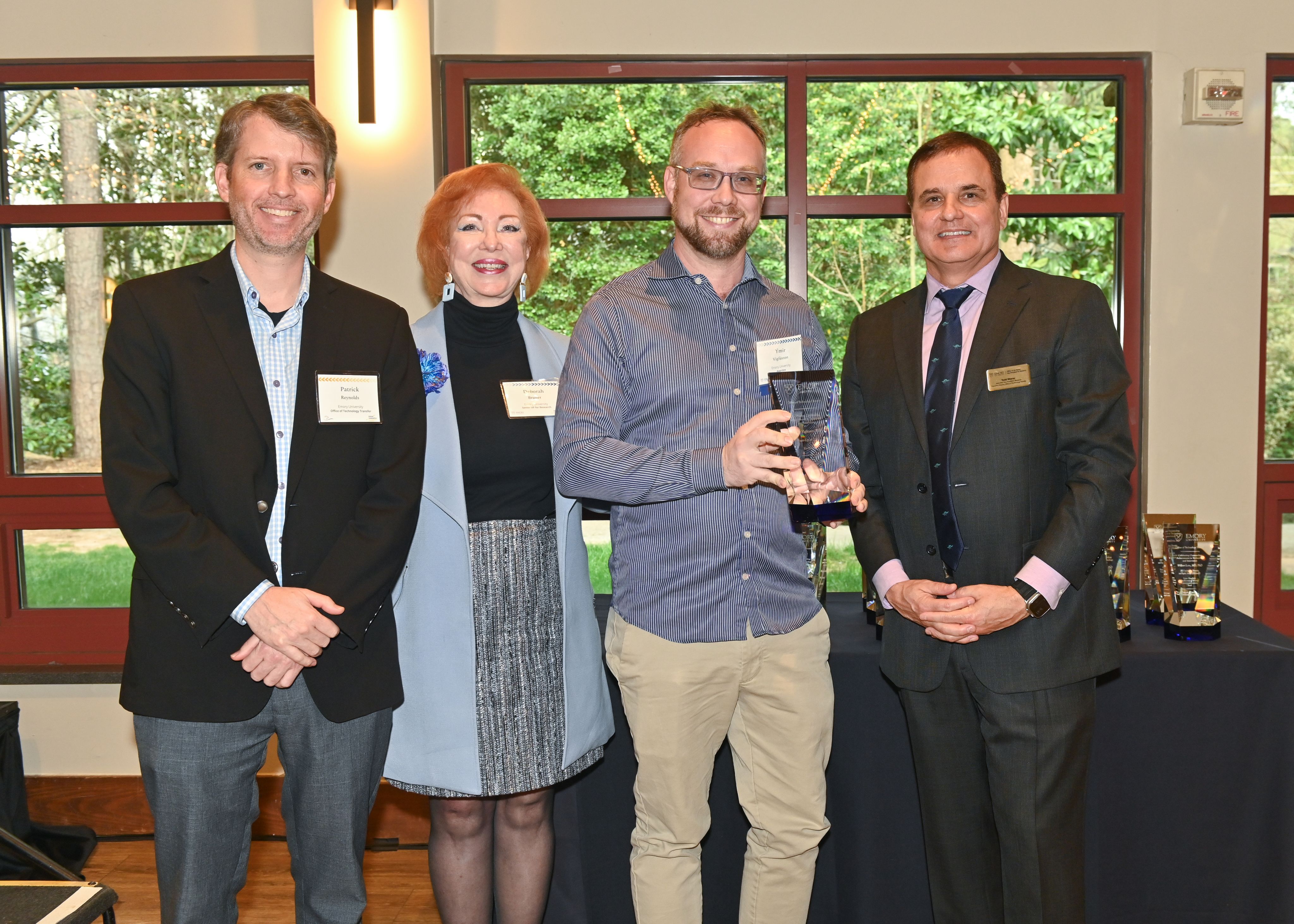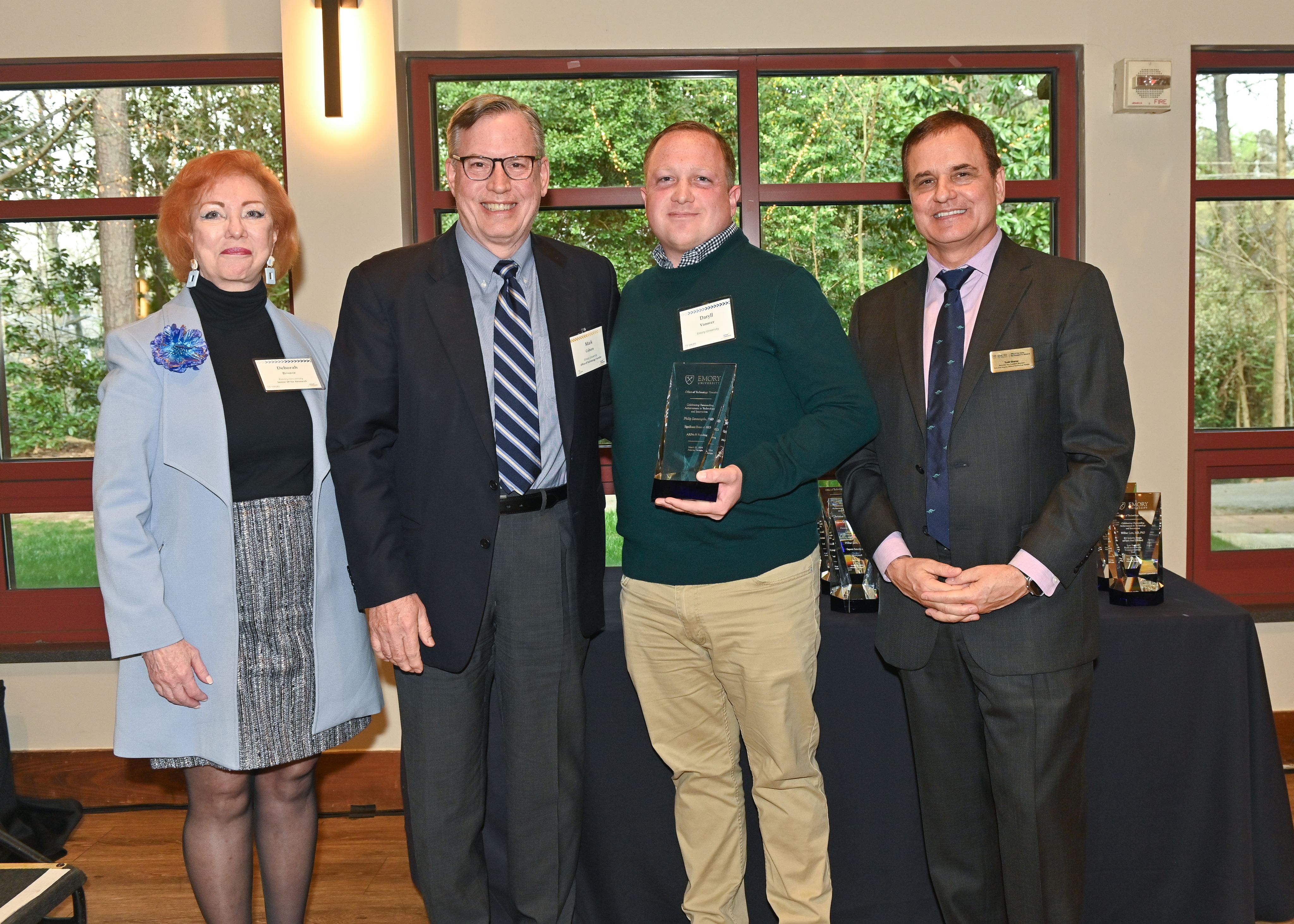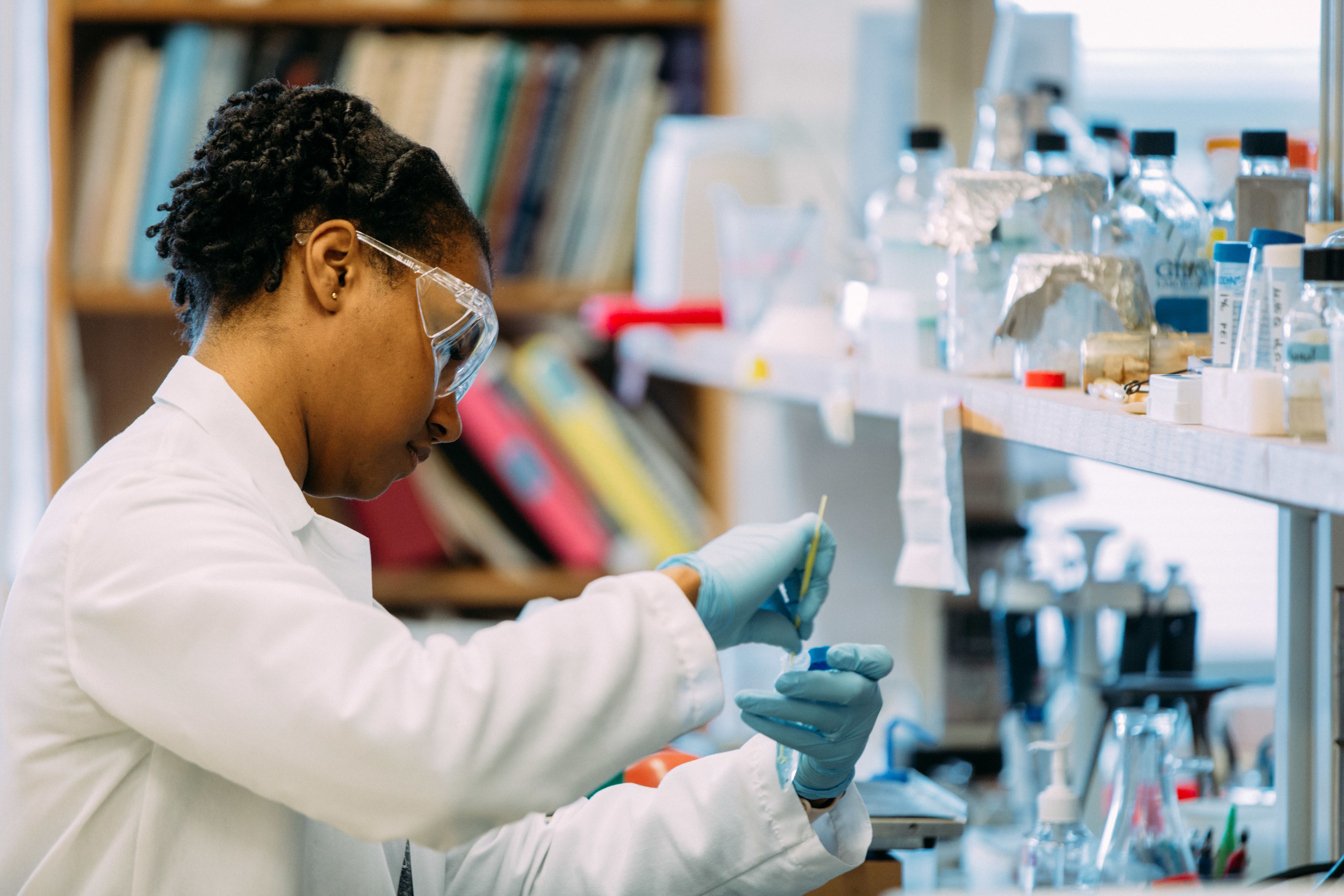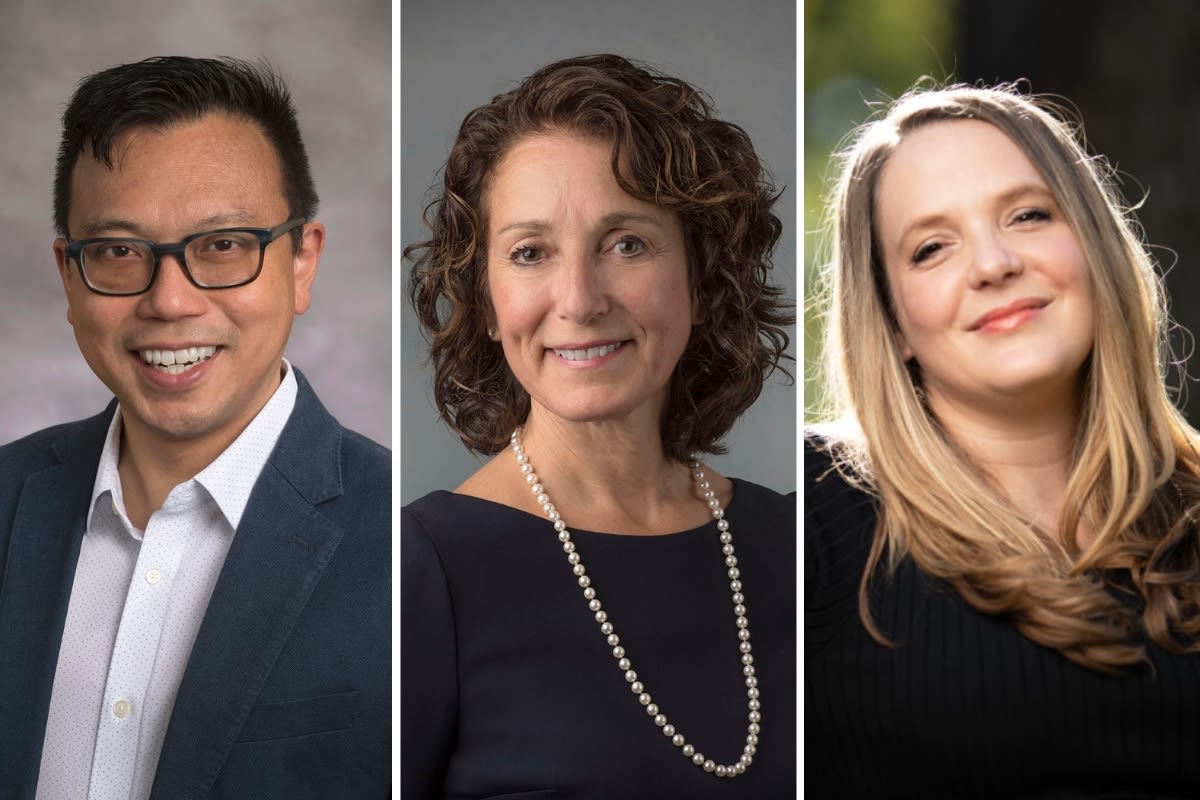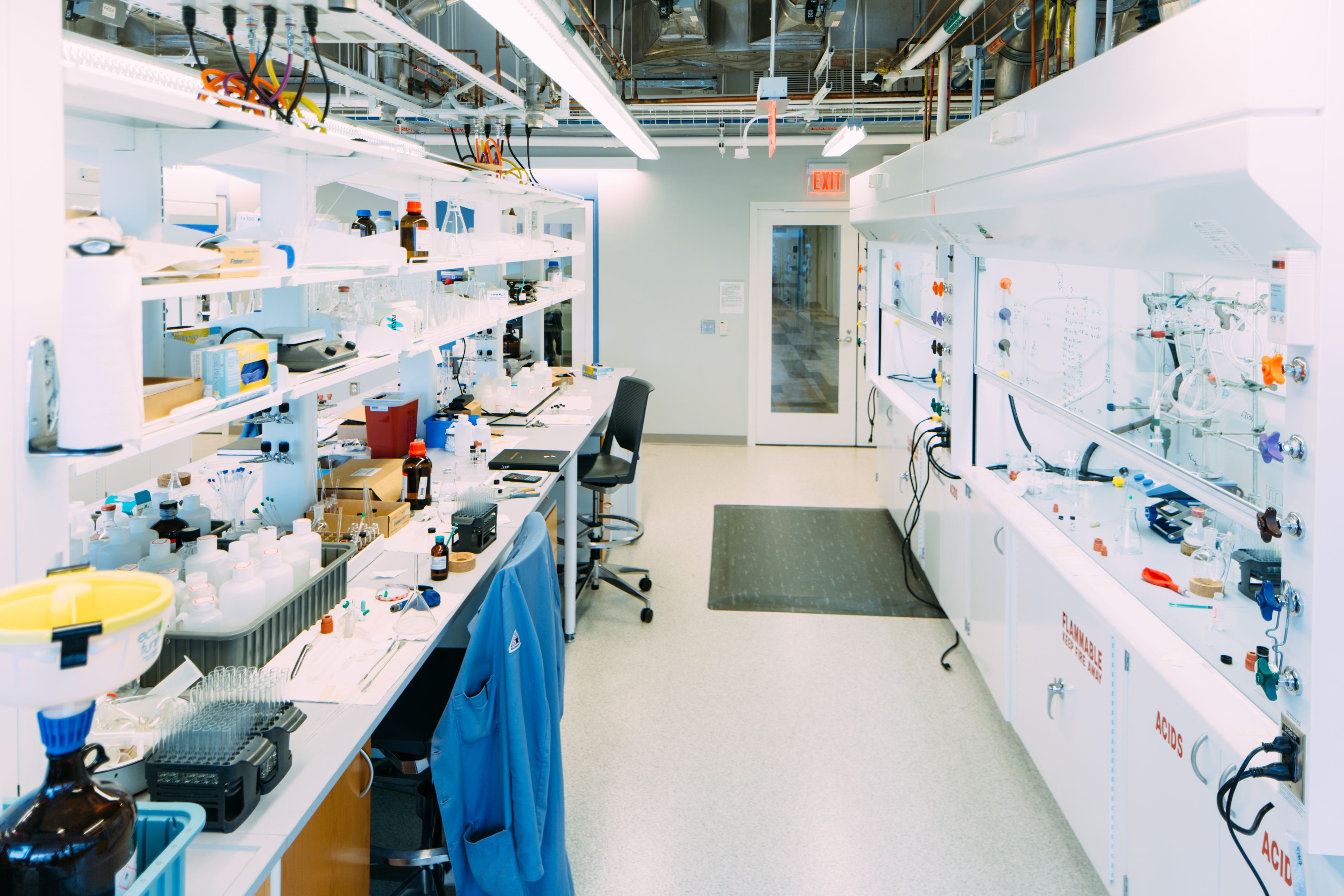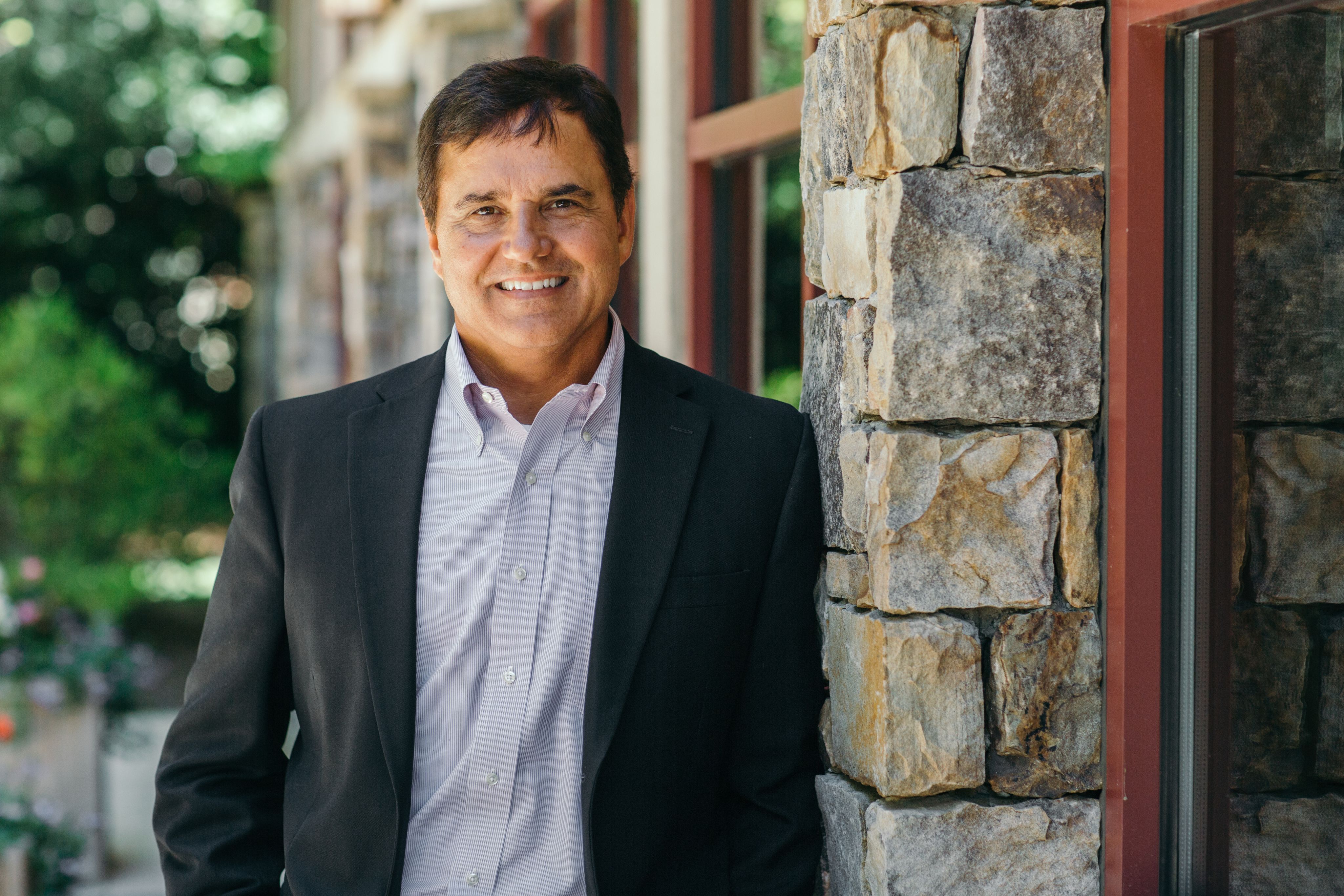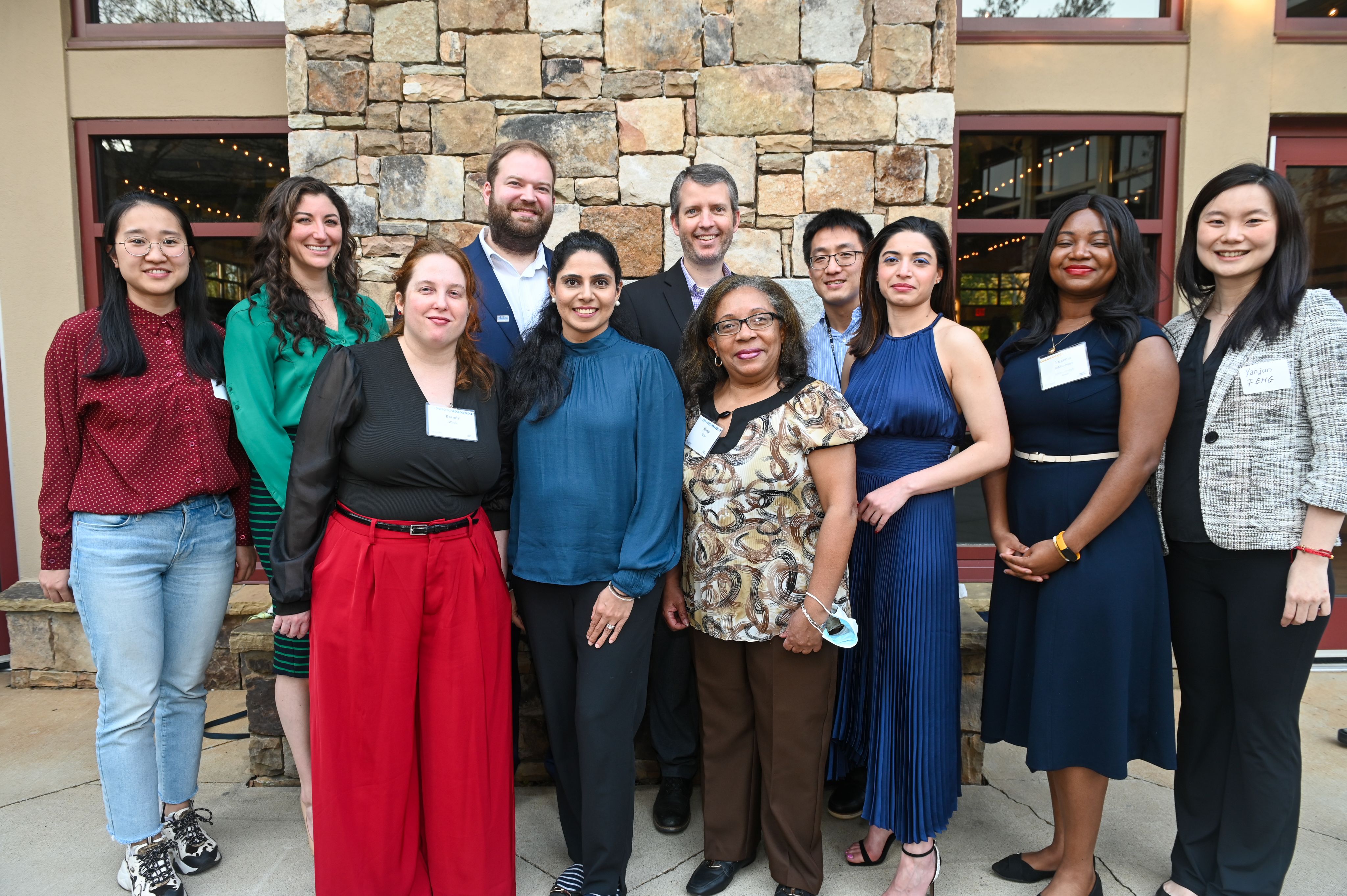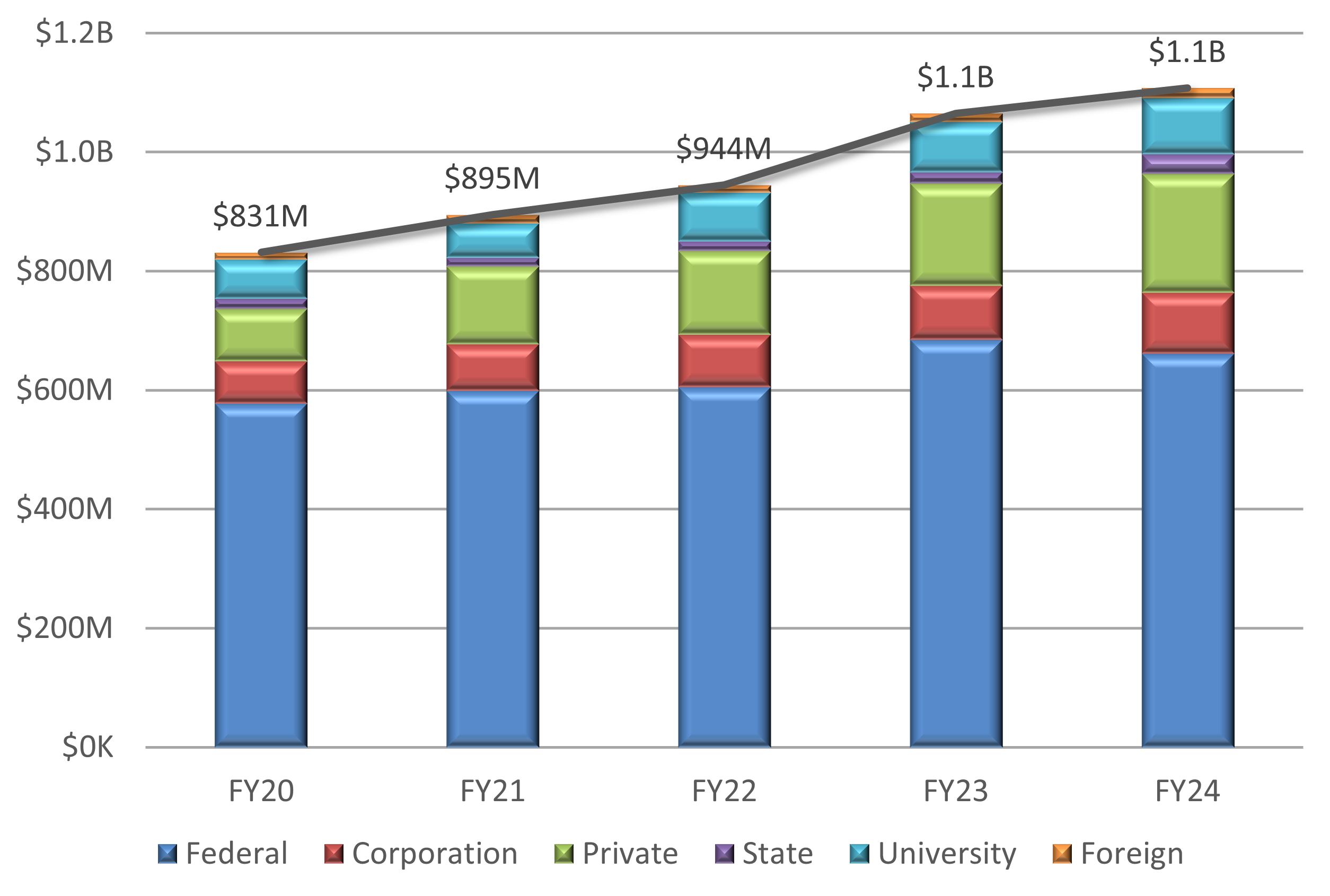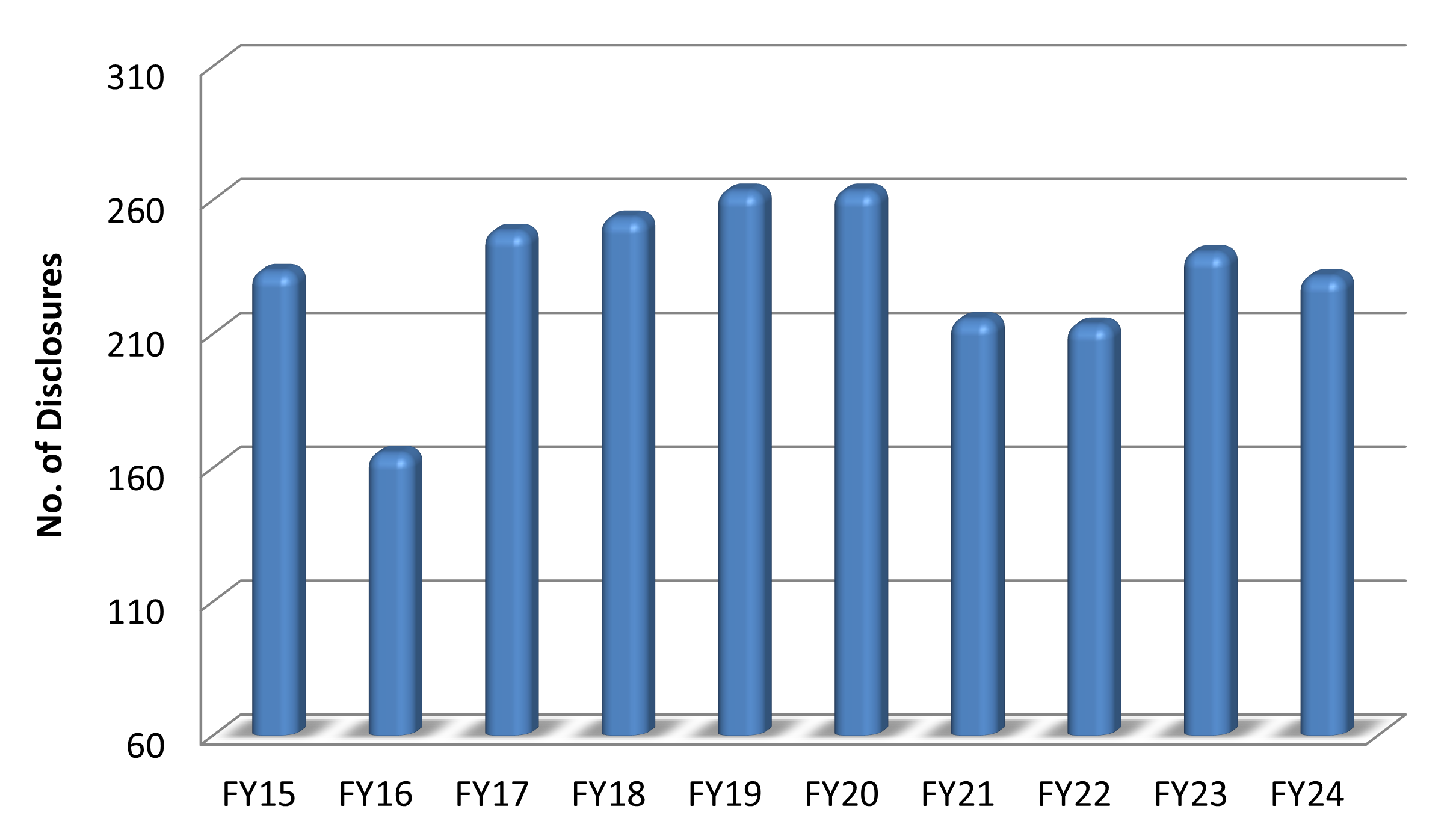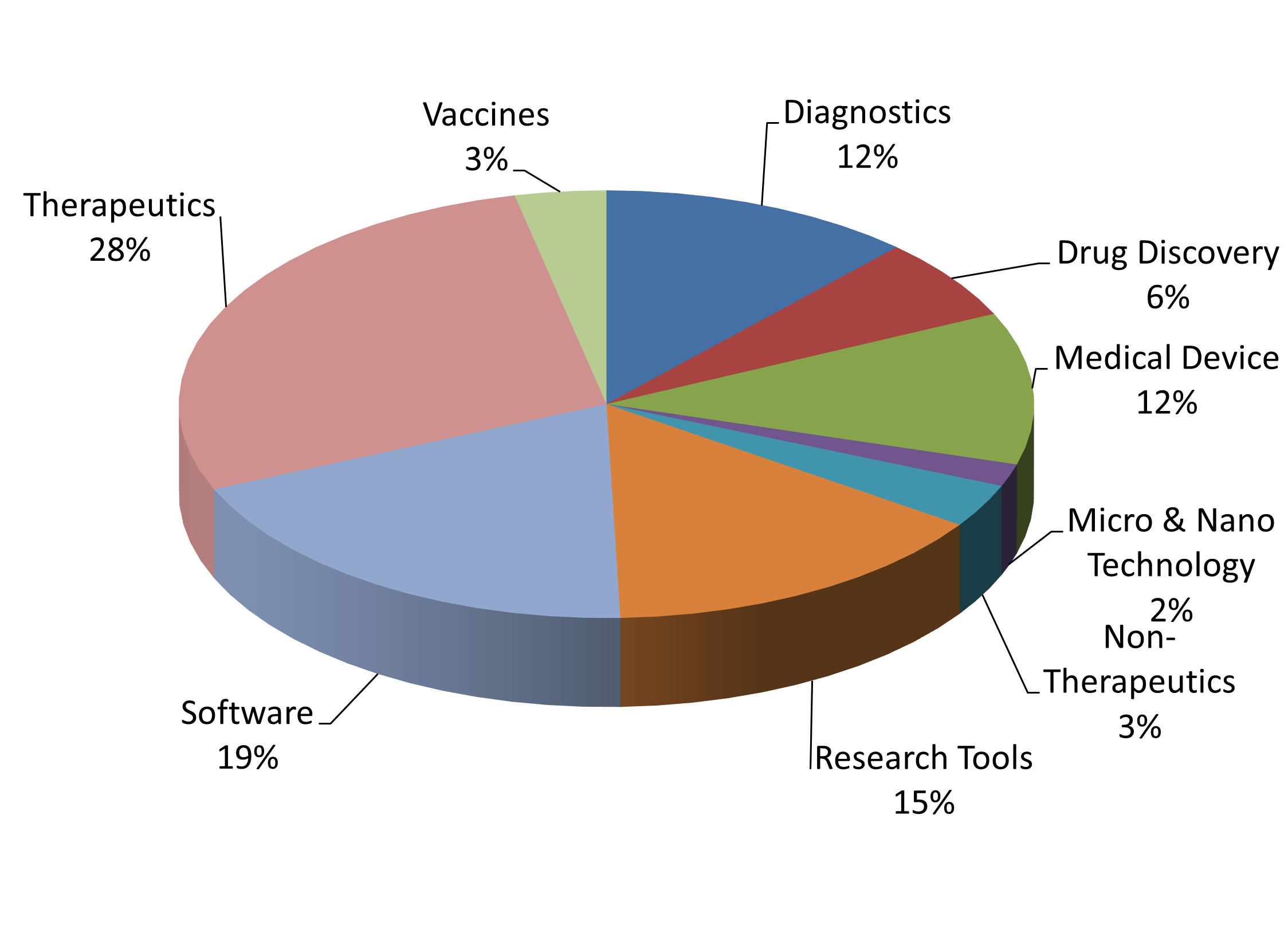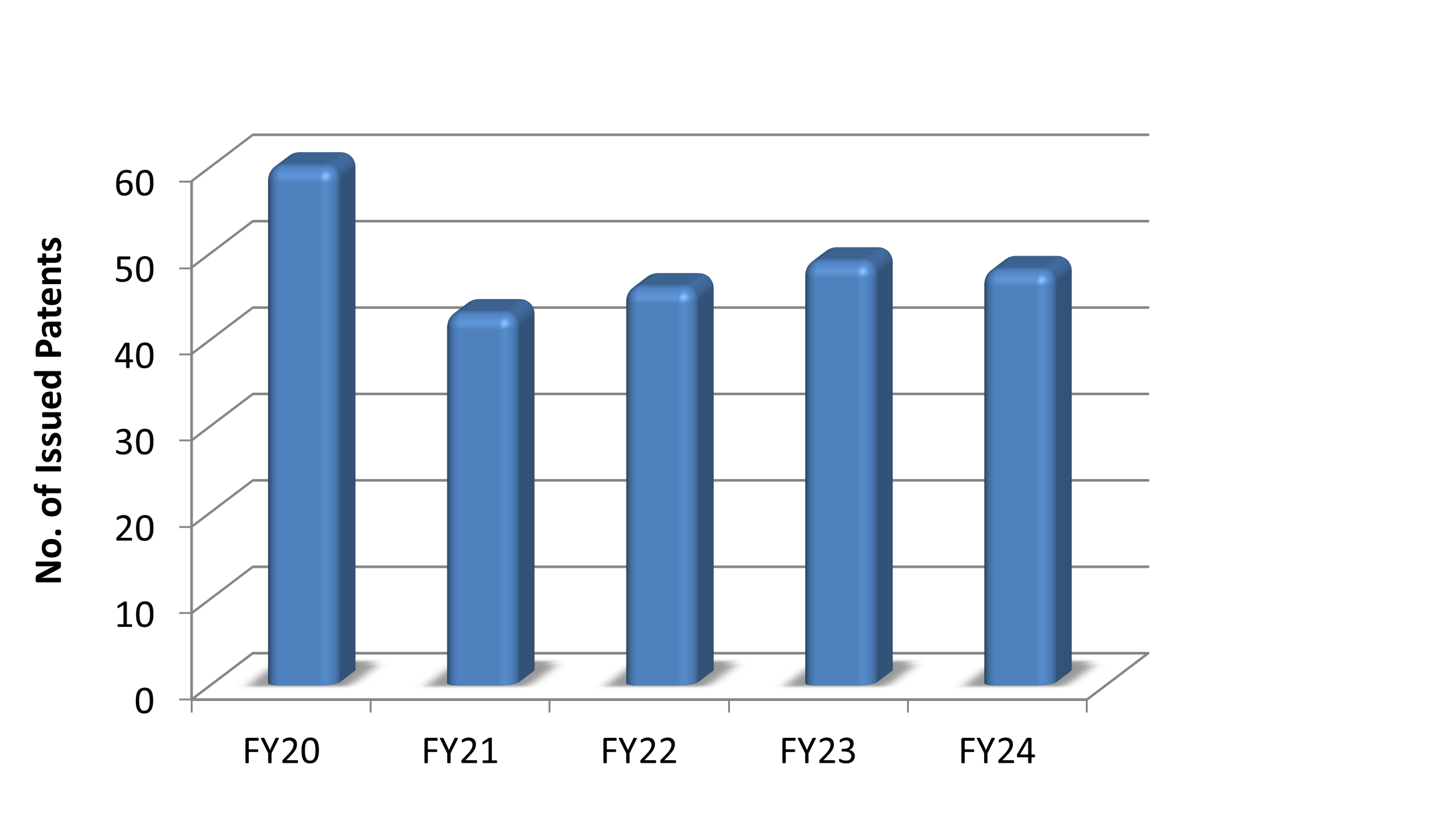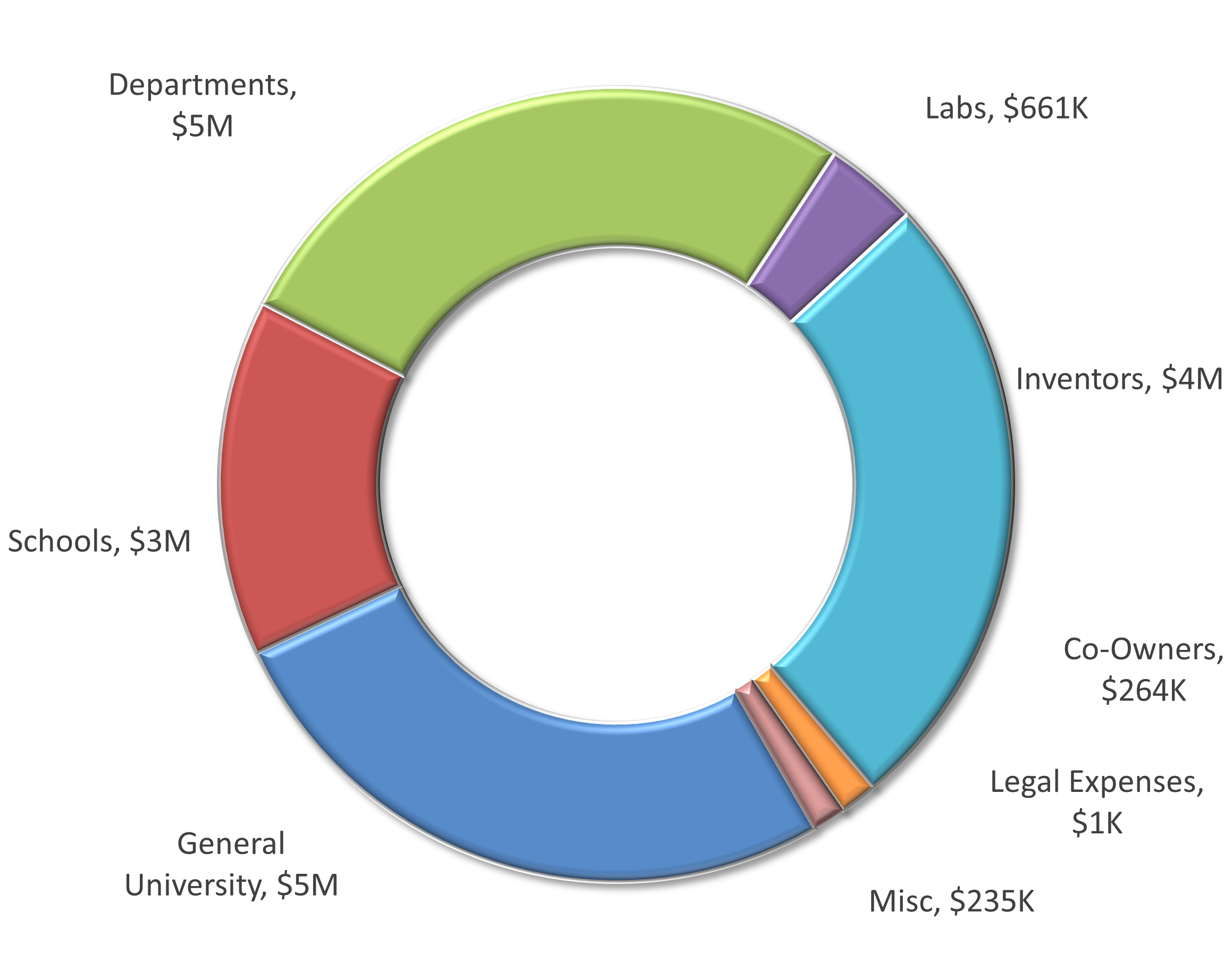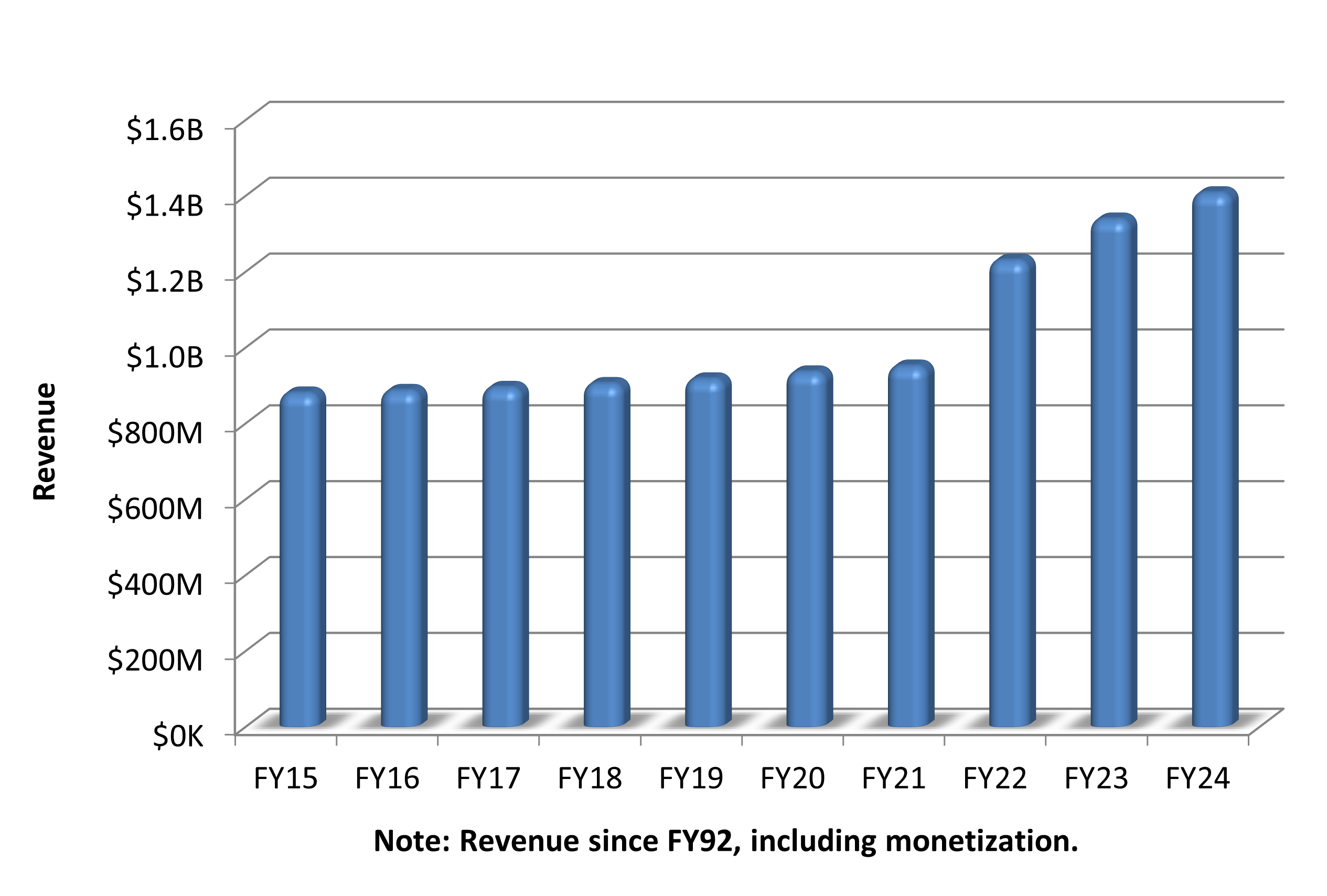Fiscal Year 2024:
In Review
New initiatives and continued traditions brought success to Emory OTT.

Putting faculty first
The Emory OTT team consists of 24 dedicated staff working together to make the technology transfer process happen as efficiently and effectively as possible. But it doesn’t start or end with our office. The tech transfer process begins long before a technology is disclosed to our office and lasts long after it’s licensed.
In FY2024, Emory University received over $1 billion in sponsored research awards for the second year in a row, surpassing our FY23 total with $1.1 billion in sponsored research in FY24. And according to the Journal of Technology Transfer, Emory is the third top contributor of FDA-approved drugs and vaccines in the world among public institutions – only behind the NIH and the entire University of California system.
Technology transfer is a team sport, so these incredible milestones don’t just happen on their own. They begin with our world-class faculty who spend countless hours in the lab researching, discovering, and mentoring the next generation of scientists. Supported by research funding, faculty conduct their innovative work. More than 6,000 publications came from Emory faculty over FY2024, with topics including AI training, better care for underserved communities, cancer research, and so much more. This year, Emory’s faculty hit outstanding milestones – three were named National Academy of Inventors Fellows and one invented a life-changing drug for chronic airway diseases, to name a couple. But it’s their daily (and often nightly) work, supported by generous funding, that truly drives discovery.
Those discoveries led to a buzz of activity in the OTT office. In FY2024, we received 231 new invention disclosures, executed 35 license agreements, and applied for 186 new U.S. patents – and had 48 issued. And when we successfully license Emory inventors’ technologies, that revenue is funneled back into research, further supporting their work. I am excited by these numbers and others, and I’m motivated to reach even higher in FY25.
This year’s success continues with other initiatives. With the Office of the Senior Vice President for Research, we graduated the first cohort of the Female Founders Forum and we continued to support female academic entrepreneurs with the Women in Innovation speaker series. Also in partnership with the SVPR and the Vice Provost for Entrepreneurship, OTT launched the new Emory Entrepreneurship Clinic, a workshop series for Emory faculty, post-docs, and grad students to launch and scale their start-ups.
However, FY24 was not without its challenges. One of the biggest our office and industry faces is the potential expansion of the Bayh-Dole Act’s march-in rights to include pricing considerations for inventions created with federal funding. I’ve written about this issue before but let me be clear: If the government uses march-in rights to control prices, not only will academic innovation suffer, but the public will also ultimately lose. I spent much of the past fiscal year campaigning against the expansion. While we don’t know the outcomes of the potential legal interpretation, this is something about which Emory and other universities remained concerned. After all, a large majority of our faculty rely on federal funding to create their life-saving and -changing innovations.
Emory’s faculty is why Emory OTT exists. We serve as a bridge through which to connect our researchers’ groundbreaking innovations with companies who can bring them to the world. But I must heartily thank the OTT team for a very successful year. Tech transfer is a team sport, and our office is home to the best players in the game. Thank you for your dedication, passion, and commitment to Emory’s success.
- Todd Sherer, Associate VP for Research, OTT Executive Director
Todd Sherer, PhD, OTT Executive Director
Todd Sherer
Emory Entrepreneurship Clinic
Emory University has become synonymous with innovation. Emory’s Office of Technology Transfer has helped launch over 100 start-up companies, and we’re not stopping anytime soon. The Emory Entrepreneurship Clinic is the latest step in continuing this legacy.
The Clinic is a workshop series for faculty, post-docs, and grad students focused on starting and scaling a startup company. Whether this is the participants’ first startup or they’re serial entrepreneurs, the 12 teams received the opportunity to learn from early-stage company experts and dive into the particulars of their own venture.
Since the program’s start in August 2024, the teams have heard from Goizueta Business School faculty and other guest speakers. As working in research is quite different from starting a business, these speaker sessions have been instrumental in giving the participants tools to create a company.
In addition to gaining the fundamentals of entrepreneurship and launching and scaling a start-up, they are all competing for a $10,000 prize in the final pitch competition and a free lab bench space for one year at Lab2Launch.
Thank you to our Emory partners at Goizueta Business School, the Senior Vice President for Research, the Vice Provost for Entrepreneurship, and Lab2Launch for facilitating this important program.
BrICS (Brain Imaging Collaboration Suite), founded by Karthik Ramesh and Hyunsuk Shim (middle and right), took home first place at Pitch Day 2024, earning $10K prize and a one-year lab bench lease at the Lab2Launch incubator.
BrICS (Brain Imaging Collaboration Suite), founded by Karthik Ramesh and Hyunsuk Shim (middle and right), took home first place at Pitch Day 2024, earning $10K prize and a one-year lab bench lease at the Lab2Launch incubator.
Annual Celebration of Technology and Innovation 2024
Each year, Emory OTT honors the incredible research at Emory University through the Annual Celebration of Technology and Innovation. Each of the seven awards honors high-impact innovations – and the researchers behind them – from the previous calendar year. This year, awarded projects spanned a range of disciplines, including hematology, cybersecurity, regenerative biology, and nursing communication.
Innovation of the Year: A Bio-Inspired Skin Interface Method for Continuous Access to Blood for Measurement and Therapy. (Left to right: SVP of Research Deborah Bruner, senior licensing associate Catherine Murari-Kanti, awardee Priscilla Delgado, OTT Executive Director Todd Sherer, and awardees David Myers and Nicholas Au Yong.)
Innovation of the Year: A Bio-Inspired Skin Interface Method for Continuous Access to Blood for Measurement and Therapy. (Left to right: SVP of Research Deborah Bruner, senior licensing associate Catherine Murari-Kanti, awardee Priscilla Delgado, OTT Executive Director Todd Sherer, and awardees David Myers and Nicholas Au Yong.)
Start-Up of the Year: Allonix Therapeutics. (Left to right: VP of Research Deborah Bruner, OTT Assistant Director of Licensing Rajsekhar Guddneppanavar, awardee Eric Ortlund, and OTT Executive Director Todd Sherer)
Start-Up of the Year: Allonix Therapeutics. (Left to right: VP of Research Deborah Bruner, OTT Assistant Director of Licensing Rajsekhar Guddneppanavar, awardee Eric Ortlund, and OTT Executive Director Todd Sherer)
Inclusivity, Diversity, and Equity Award (IDEAward): Low English Proficiency Nurse Communication Tool. (Left to right: SVP of Research Deborah Bruner, awardees Meichen Wei, Christina Calamaro, licensing associate Sat Balachander, awardees Santiago Arconada Alvarez, Wilbur Lam, Michael Fundora, and OTT Executive Director Todd Sherer)
Inclusivity, Diversity, and Equity Award (IDEAward): Low English Proficiency Nurse Communication Tool. (Left to right: SVP of Research Deborah Bruner, awardees Meichen Wei, Christina Calamaro, licensing associate Sat Balachander, awardees Santiago Arconada Alvarez, Wilbur Lam, Michael Fundora, and OTT Executive Director Todd Sherer)
Start-Up of the Year: KeyStrike. (Left to right: Director of Faculty & Start-up Services Patrick Reynolds, SVP of Research Deborah Bruner, awardee Ymir Vigfusson, and OTT Executive Director Todd Sherer)
Start-Up of the Year: KeyStrike. (Left to right: Director of Faculty & Start-up Services Patrick Reynolds, SVP of Research Deborah Bruner, awardee Ymir Vigfusson, and OTT Executive Director Todd Sherer)
Corporate Partnership of the Year: Honeywell. (Left to right: OSP Director of Contracts Janette Hannam-Hayes, SVP of Research Deborah Bruner, OTT Executive Director Todd Sherer, awardees Erica Evans, Kirby Fibben, Wilbur Lam, and Vivien Sheehan.)
Corporate Partnership of the Year: Honeywell. (Left to right: OSP Director of Contracts Janette Hannam-Hayes, SVP of Research Deborah Bruner, OTT Executive Director Todd Sherer, awardees Erica Evans, Kirby Fibben, Wilbur Lam, and Vivien Sheehan.)
Significant Event of the Year: ARPA-H Funding. (Left to right: SVP of Research Deborah Bruner, and OTT Director of Licensing Mark Coburn, awardee Daryl Vanover (accepting on behalf of Philip Santangelo, and OTT Executive Director Todd Sherer)
Significant Event of the Year: ARPA-H Funding. (Left to right: SVP of Research Deborah Bruner, and OTT Director of Licensing Mark Coburn, awardee Daryl Vanover (accepting on behalf of Philip Santangelo, and OTT Executive Director Todd Sherer)
EmpowHER Award: Louise Hecker. (Left to right: SVP of Research Deborah Bruner, licensing associate Shweta Ghai, awardee Louise Hecker, and OTT Executive Director Todd Sherer)
EmpowHER Award: Louise Hecker. (Left to right: SVP of Research Deborah Bruner, licensing associate Shweta Ghai, awardee Louise Hecker, and OTT Executive Director Todd Sherer)
Highlights
$1.1 billion in sponsored research awards
Emory University secured over $1.1 billion in sponsored research awards, surpassing FY23's record-breaking $1 billion.
Additionally, our sponsored expenditures, which serve as a key indicator of our research activity and economic impact, nearly crossed the $1 billion mark in FY24.
"This sustained excellence within all facets of research
enables us to continue to fulfill our mission of creating, preserving, and applying
knowledge in the service of humanity."
These - and many more - accomplishments highlight the incredible impact of Emory's talented faculty and researchers across the university.
Three Emory inventors named NAI Fellows
Wilbur Lam, MD, PhD; Susan S. Margulies, PhD; and Cassandra Quave, PhD, have been named fellows of the National Academy of Inventors (NAI), the highest professional distinction accorded to academic inventors.
NAI Fellows are academic inventors who have "created or facilitated inventions that have made a tangible impact on quality of life, economic development and the welfare of society."
“This year’s class of NAI Fellows showcases the caliber of researchers that are found within the innovation ecosystem ... These individuals are making significant contributions to both science and society through their work.”
Emory start-ups enjoy FY24 successes
- Aligos Therapeutics announced $92 million private placement financing.
- In8Bio completed Phase I clinical trial for INB-100 in October 2023 and initiated Phase IIa in Q1 2024 for treatment of patients with leukemia undergoing hematopoietic stem cell transplantation.
- Carrick Therapeutics announced a first patient dosed in Phase IIb clinical trial of samuraciclib.
- RegenXBio completed Phase II clinical trial for Zolgensma, a treatment administered to patients with spinal muscular atrophy.
- Sanguina received FDA clearance for AnemoCheck Home.
- Seven Emory start-ups joined the first cohort of residents at Lab2Launch.
In FY24, OTT helped launch five start-ups. As for the companies formed in previous years, 106 are still active.
OTT speaks out against Bayh-Dole challenges
In the past year, academic innovation was under threat from challenges to the Bayh-Dole Act. This legislation gives ownership of inventions created with federal funds to the inventors and their institutions - not the government.
OTT Executive Director Todd Sherer wrote about the implications of challenging Bayh-Dole's march-in provision, appeared in the Bayh-Dole Coalition's "Save Bayh-Dole" campaign, and was outspoken about the harm that will come from using the Act to control pricing.
We don't know what the future holds for this Act, but we remain hopeful that American innovation will continue to be protected.
OTT introduces new process for low-risk, outgoing DUAs
Most outgoing data use agreements (DUAs) leaving Emory are classified as low-risk.
To streamline and expedite their processing times, OTT implemented a new strategy: giving Emory PIs and research teams control of executing these types of contracts.
This new, simplified approach reduces cycle time and gives PIs and their research teams more control over the timeline. And when faculty submit complete packages, we're able to get their DUAs out the door in 1-2 days.
Students and interns learn tech transfer
OTT's internship and student employment program give real-world experience and insight into the tech transfer industry. This year, we worked with 16 students and interns. But since the program's inception, we've had 175 interns and 48 student employees. Nine interns have become full-time employees at Emory OTT.
The internship honed my ability to evaluate innovations for both their scientific merit and commercialization potential—a skill I would not have developed without this experience and one that will undoubtedly benefit my future career.
In FY24, we also launched a revamped application page with details about the different employment tracks, including licensing and patent internships and marketing student opportunities.
FY2024 By the Numbers
$1.1 billion in sponsored research awards went to Emory – building upon the record broken last year.
Emory inventors submitted 231 invention disclosures this year.
1,827 active technologies in OTT's portfolio
48 U.S. patents issued to Emory inventors in FY24
35 licensing agreements were made in FY24.
$17.2 million - the majority of FY23 revenue - went to the university, departments, schools, and inventors. The rest went to co-owners, labs, and legal and miscellaneous fees.
$1.3B in cumulative revenue for Emory since FY1992
These numbers are a testament to the hard work of many. Congratulations to all who made it happen - and who are instrumental in bringing Emory innovations from bench to bedside.
Want more facts and figures? See how OTT's stats stack up.
Looking Ahead
Emory's Office of Technology Transfer exists because of the university's world-class, entrepreneurial faculty and researchers. It is their passion and ambition to benefit humanity that drives us to be better partners.
And when their work is licensed, protected, and commercialized, the revenue gets reinvested back into Emory research.
Thank you to all those who make research happen at Emory University. We look forward to partnering with you in the year to come, bringing even more innovations from the bench to the bedside.
Stay up to date with us OTTers throughout the year by following us on LinkedIn!

